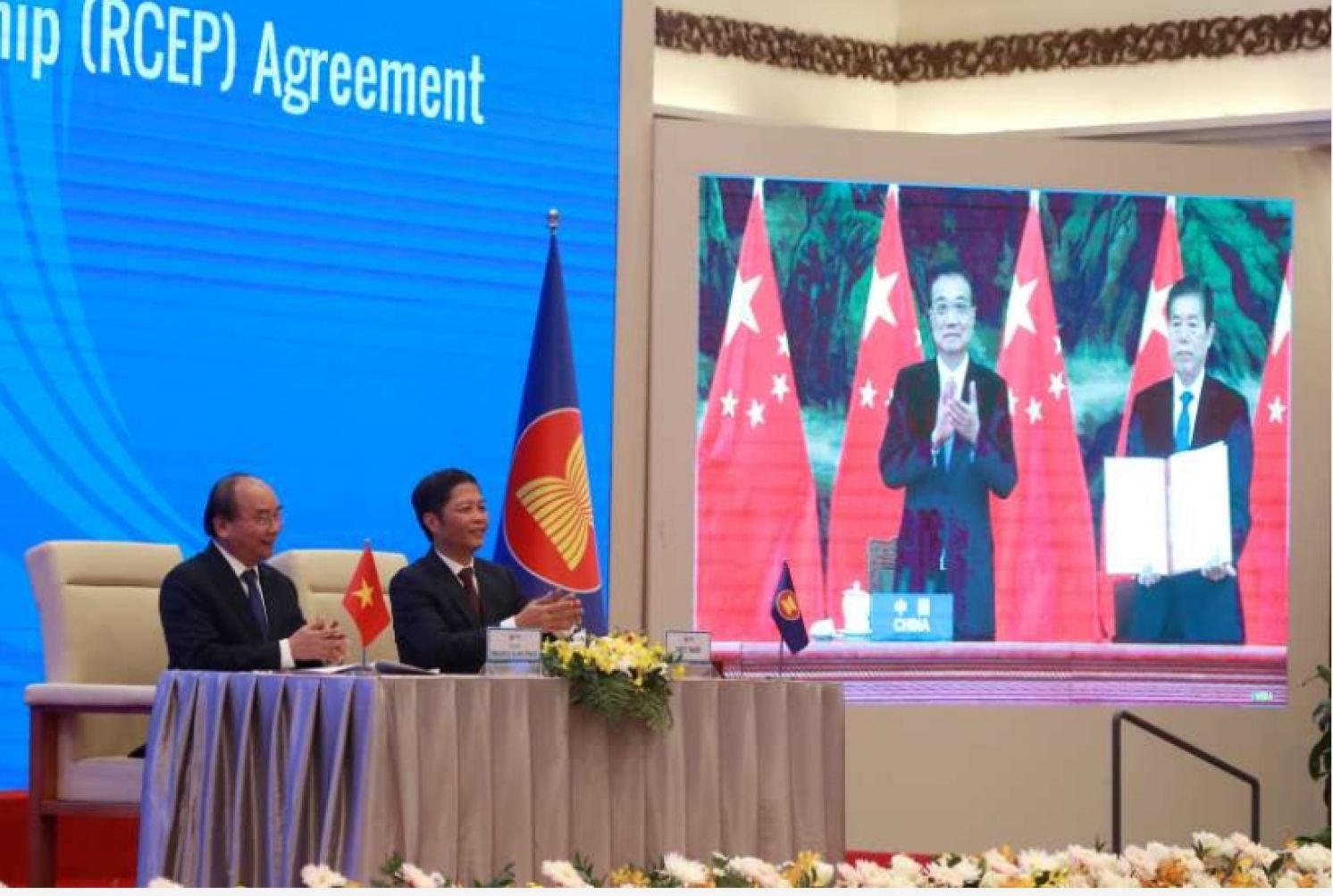
RCEP Effect Cannot be Ignored
The Storm Media, November 11, 2022
The Regional Comprehensive Economic Partnership (RCEP), which came into effect on January 1 of this year, has garnered less attention than the Comprehensive and Progressive Trans-Pacific Partnership (CPTPP). Because although the RCEP includes 15 countries, including the 10 ASEAN countries, China, Japan, South Korea, Australia, and New Zealand, it accounts for about 30 percent of the world in terms of economic size, population, and trade value. It is the world's largest free trade agreement (FTA).
However, the content of the RCEP is not deep enough and is far less open than the CPTPP. In addition, the RCEP stipulates that new members can only be admitted one and a half years after it takes effect. At present, only Hong Kong is the most likely to join, which is different from the CPTPP, which can accept new member applications immediately after it takes effect. So far, five countries including Taiwan have applied to join the CPTPP, and many countries have expressed their willingness to join. The CPTPP has become the most attractive FTA in the world.
Although there is less attention paid to RCEP, its influence should not be underestimated. The United States is trying to work with countries throughout the Asia-Pacific, garnering countries to form various political and economic alliances to check and balance mainland China. The RCEP has become an important platform for mainland China to compete with the United States. Under the U.S.-China trade war, to avoid the punitive tariffs imposed by the United States on mainland China, many mainland companies have moved their production bases from the mainland to the RCEP region; coupled with the promotion of the industrial cooperation mechanism within the RCEP, the economic and trade relationship between mainland China and the RCEP are strong.
Even though mainland China has also applied to join the CPTPP, it is quite difficult to comply with the high standards of the CPTPP; and there is still noise in the CPTPP regarding the participation of the mainland, it is still difficult for China to join in the short term. In the future, the RCEP will still be the most important region for mainland China in the Asia-Pacific trade agreement.
The degree of openness of the RCEP is low, especially for the more sensitive state-owned enterprises in mainland China, digital trade and intellectual property rights regulations are not as strict. In addition, the service industry in the mainland adopts a "positive list" and the degree of openness is not high. This allows mainland China to join the RCEP to enjoy benefits without substantial liberalization and become the main beneficiary country.
Due to the deep-rooted influence of mainland China in the RCEP, Taiwan's participation can be said to be out of reach, so Taiwan should face the impact of not joining the RCEP. In 2021, about 70 percent of Taiwan's exports will go to the RCEP, including 42 percent to the mainland. If you look further, you can find that most of Taiwan's exports to the RCEP are already zero-tariff, so they will not be affected by the RCEP's tax reduction. However, although the proportion of Taiwan’s non-zero-tariff products exported to the RCEP is not high, they are mainly traditional industries such as machinery, textiles, food, and petrochemicals, and are still dominated by small and medium-sized enterprises. With the spread of global FTAs, without an FTA, their scope has been limited. In the future, as the RCEP continues to reduce taxes, the negative impact on these industries will be even greater.
In the future, the gap between Taiwan's zero-tariff and non-zero-tariff products exported to the RCEP will continue to widen, and the proportion of non-zero tariffs in total exports will continue to decline. However, this is not an explanation that the RCEP has little impact on Taiwan's exports, but the result of the impact of the RCEP. In the future, how to assist these industries to expand exports and reverse the disadvantages of tariffs is very critical.